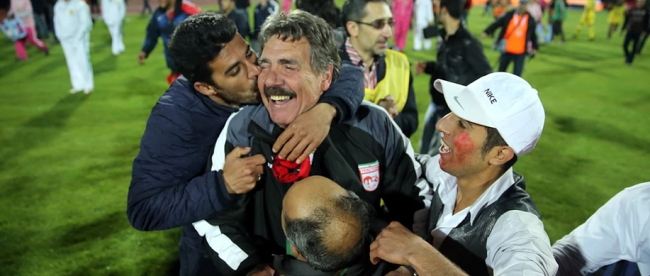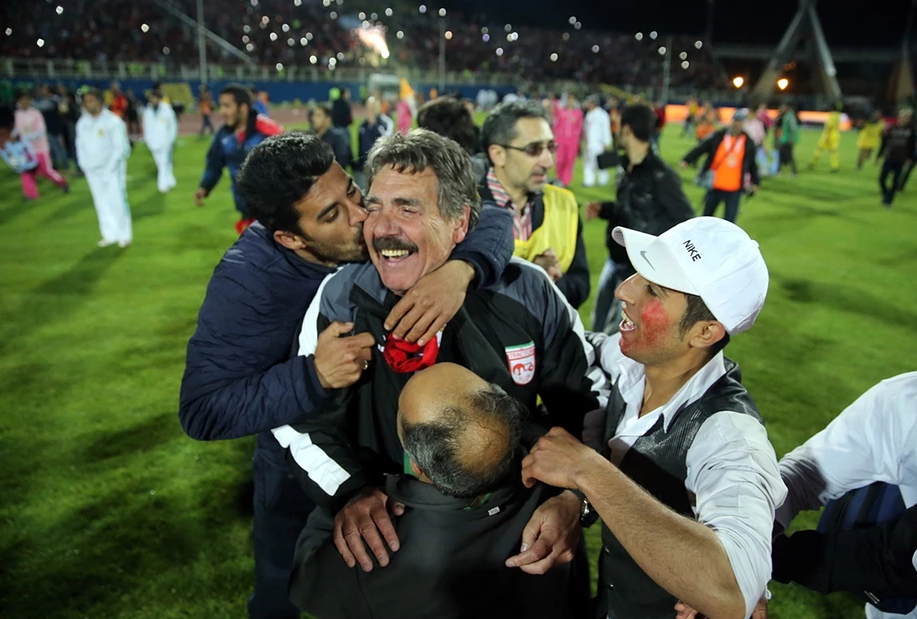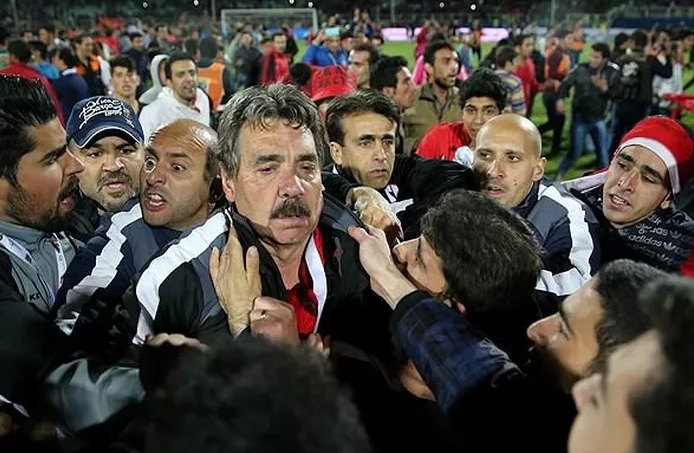A Strange Goal or Two

The Persian Gulf Pro League is the highest level of Iranian soccer. The IPL, as it is often called (“Iran Pro League”), dates back to 1970, but has been around since 2001 in its current form. The sixteen teams in the IPL play thirty games over the course of a season; each team plays a home game and away game against the other fifteen squads. The league champion is the one which, at the end of the season, has the most points, and teams earn points by beating another team (worth 3 points) or if their game ends in a tie (1 point).
On May 15, 2015, a season-high 81,756 fans came to see Tractor Sazi host Naft Tehran on the league’s final day. To say the game was popular, locally, was an understatement — Tractor Sazi’s stadium, officially, only has capacity for about 65,000 fans. But this was a very, very important game. The two teams entered this final game in a tie for first place, at 57 points each. The winner of the game would win the IPL cup, something neither had done before. If the two teams tied, though, things were a bit more complicated. Tractor Sazi would prevail over Naft based on tie breakers, but the tie would put both teams at 58 points. Another team, Sepahan, entered the day with 56 points; a Sepahan win would put them at 59 points, and combined with a Tractor Sazi/Naft tie, would give Sepahan the cup.
As the Tractor Sazi fans watched their team, though, the threat of Sepahan swooping in to take the title abated. With only a few minutes left to play, some technical difficulties appeared, blocking nearly all communications — TV, cell phones, and radio all failed. At about the same time, per a Naft executive (via Yahoo) everyone at the stadium was informed that “the match between Sepahan and Saipa had ended with 2-2 draw.” The Tractor Sazi/Naft game was knotted at 3-3; if that score held, Tractor Sazi would win its first ever IPL title.
When the final whistle blew a few minutes later, the scoreboard still read 3-3. The Tractor Sazi players celebrated. Fans cheered and screamed in joy, and many ran onto the pitch. As seen below, some fans even made it to Tractor Sazi coach Tony Oliveira (image via the Guardian), kissing and embracing their team’s leader:

But a few minutes later, those tears of joy turned to tears of anger, and the glory on Oliveira’s face turned to this (via SB Nation):

The reason? A lie. The news that the Sepahan match ended in 2-2 tie was false. In fact, Sepahan prevailed over Saipa, 2-0. Tractor Sazi didn’t win the title. They finished the season in second place.
And the fans were not happy. They began brawling, rioting, and generally showing their displeasure in destructive ways.
Ironically, the reason for the communications blackout (the fact that such a thing is even possible is mindboggling but alas, another story) was to prevent this sort of behavior in the first place. A reporter would later tweet that the officials seeded the false information about the Sepahan tie in order “to keep security.” Unfortunately, it had the opposite effect (which was entirely predictable). Whether any action was taken against stadium officials went unreported.
Bonus Fact: It’s safe to assume that the vast majority of the rioting Tractor Sazi fans were men. And no, that’s not because of some preconceived notion about gender and behavior — it’s because there probably weren’t many, if any, women in the stadium in the first place. As Vice notes, Iran does not allow Iranian women to attend sporting events in stadiums: “Hardline clerics insist that it is inappropriate to have women at matches, where they would unnecessarily be mixing with men outside their families, where the male players wear shorts, and where, the clerics say, there is often vulgar language and behavior.” Non-Iranian women are allowed to attend games, however.
From the Archives: Sometimes, To Win, You Have to Play to Lose: The strangest soccer game ever played.
Take the Quiz: Name the largest cities in Iran.
Related: A scarf for supporters of Iranian soccer.
